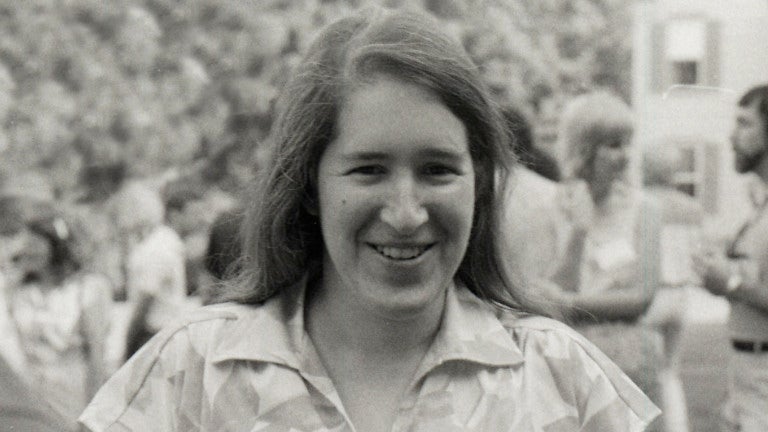
The Dr. Janet Mertz Collection is comprised of materials accumulated during her time at the graduate school of Stanford University. A majority of the materials are laboratory notebooks and slides from work in Paul Berg’s lab in the biochemistry department, and the research leading up to and following the creation of the first recombinant DNA. The collection also includes her 1975 thesis and email correspondence with producers Meredith DeSalazar and Lily Garrison for two separate documentaries made in 2019 and 2020.
Janet E. Mertz, born 1949, is an American biochemist, molecular biologist, and cancer researcher. She earned her undergraduate degree in 1970 from the Massachusetts Institute of Technology and joined the biochemistry department at Stanford University in September of that same year, working with her doctoral advisor Paul Berg in his lab. Initially, the Berg lab focused on work related to gene cloning techniques, and Mertz was assigned the project of figuring out how to replicate and express recombinant DNAs in E. coli bacteria. However, after concerns were raised by Richard Pollack at a course taught at Cold Spring Harbor Laboratory, Berg imposed a moratorium on experiments in his lab related to potentially cloning any oncogenes (e.g. from SV40) until the safety concerns had been addressed.
In the interim, Mertz focused on other projects related to the development of recombinant DNA techniques, including the examination of the infectivity of different forms of SV40 DNA in primate cells. Mertz discovered that DNA ends generated by cutting with the EcoRI restriction enzyme are “sticky,” permitting any two such DNAs to be readily recombined. Using this technique, in June 1972 she created the first recombinant DNA that could have been cloned in bacteria. Unable to proceed further with the discovery due to the moratorium, Mertz’s Ph.D. thesis centered around developing other ways to create, select, and grow mutants of SV40. Paul Berg received the 1980 Nobel Prize in Chemistry in part for the discoveries Mertz made under his mentorship.